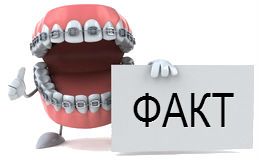Some believe that the procedure for removing a wisdom tooth is a kind of rite of passage into adulthood. But is it really necessary to get rid of a wisdom tooth, or in some cases can you do without it? There is no single answer, since each case is individual. Clearly, wisdom tooth extraction helps prevent a number of dental problems, both now and in the future. However, the final decision is made only after assessing the characteristics of the growth of the "wise" tooth, its position and possible impact on the surrounding teeth.
Consider all the pros and cons
Wisdom teeth are recommended to be removed when:
- There is inflammation of the gums. Impacted wisdom teeth are in close contact with other teeth, as if “pushing” them, causing pain and swelling, especially when they are just erupting. A partially erupted tooth can lead to infection, cysts, or tumors in the soft tissues of the gums, and less commonly, in the jawbone. These are serious problems that negatively affect your overall health. Incompletely erupted teeth can create deep pockets around them where food and all sorts of bacteria can accumulate and cause infection.
- Adjacent teeth suffer. The growth of wisdom teeth is accompanied by the formation of deep pockets. They are the perfect habitat for food leftovers. As a result, root caries, plaque can appear in the pockets around the teeth. If the adjacent teeth begin to develop caries of the roots, then the removal of the wisdom tooth (and possibly the neighboring ones) is simply necessary.
- The position of the tooth interferes with jaw movements or interferes with chewing. Does a wisdom tooth create discomfort in the mouth? Do you bite your cheek while chewing food? Any food can get into the cavity between the cheek and the gum and cause swelling and gum disease. A swollen gum is often the reason why a person bites his cheek. If the wisdom tooth creates such problems, then the food is not chewed well, and as a result - unhealthy digestion, then the tooth needs to be removed.
- When a wisdom tooth erupts, it has two options: either it grows crooked and pushes the root of the adjacent tooth, or it grows correctly and does not contact the adjacent tooth. Trying to cut through the gum, the wisdom tooth moves in the jawbone. If the movement occurs towards the adjacent tooth, then it is under pressure and may suffer. In some cases, it is the root of the adjacent tooth that suffers, then either surgery or removal of the wisdom tooth is required. When it is obvious that the action takes place according to the second scenario, that is, the wisdom tooth does not touch the neighboring tooth in any way, then it is not necessary to remove it. In any case, all risks are weighed, and if the wisdom tooth does not cause harm, it can be left.
After considering the reasons why a wisdom tooth is recommended to be removed, let's look at the reasons when a wisdom tooth is not recommended to be removed.
So, it is not necessary to remove a wisdom tooth when:
- He is healthy
- Fully erupted
- It occupies the correct position and does not put pressure on adjacent teeth
- Grows right
The procedure for removing a wisdom tooth includes:
- X-ray and examination by a doctor to confirm the need for removal
- Consultation about anesthesia, removal of the tumor (taking sedatives and painkillers) before removal
- Designation of the day of arrival at the dental office, planning and administration of anesthesia
- Surgical opening of the gums and removal of a wisdom tooth (possibly a neighboring one)
- Suturing gums after removal. Stitches will be removed during treatment (in some cases, stitches are not applied so that the wound heals faster)
- The procedure takes a little over an hour. The doctor will tell you exactly how long the whole process will take at the preliminary consultation.
What happens after a wisdom tooth is removed?
- Post-operative actions will be discussed with you in the dental office.
- Gauze pads will help stop bleeding. They must be kept in the mouth.
- You can apply an ice pack to your cheek. It will help reduce swelling.
- It is important to rest, refrain from sports and strenuous work for several days.
- Avoid smoking, carbonated drinks. Drink through a straw. You can not eat chips, nuts and too solid food. Give preference to soft foods for at least 2-3 days.
- Be sure to follow all the prescriptions of the dentist and take medication.
If you feel pain or discomfort and do not know whether to remove a wisdom tooth or not, contact us for advice and professional help. We have the answers and we can help.






